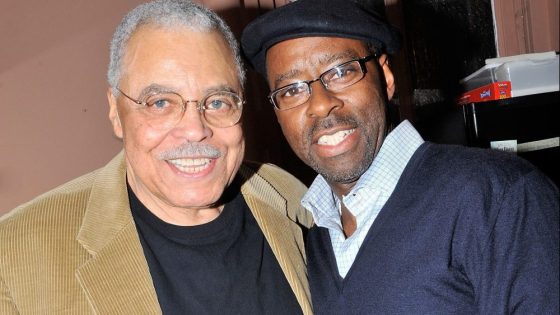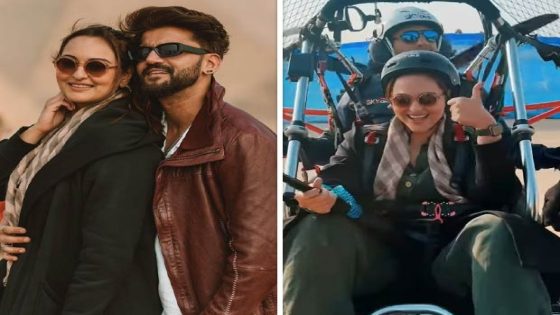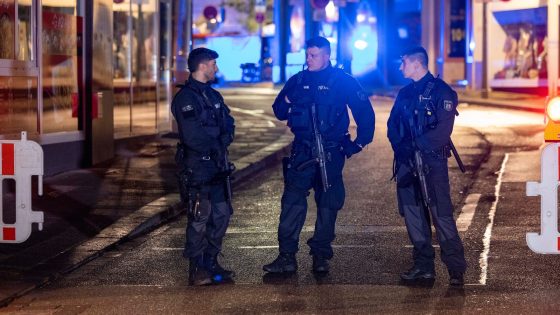Courtney B. Vance is a Tony- and Emmy-winning actor and the president of the SAG-AFTRA Foundation. To Vance, legendary actor James Earl Jones was known as “Jimmy.” The two first met in the 1980s while starring in August Wilson’s drama “Fences,” which went on to win the Pulitzer Prize and four Tony Awards, including Jones’ prize for best leading actor in a play. Here, Vance reflects on the “Fences” family, their enduring friendship and his final visit with his onstage father.
James lived in upstate New York, and I was there about six months ago. The whole family was there, and we were all just laughing, talking about old times. He said to me, “Courtney, they’ve got me so ensconced in this bubble, I think I’m gonna live to be 100.” I said, “Jimmy, I know you will.” We didn’t have a chance to reminisce about our experience with “Fences,” what that time in our lives meant to us. That’s my only regret.
[In the 1980s] Lloyd Richards, the director and master teacher, had set up a template where August Wilson’s plays went to all the regional theaters, and we’d workshop the play as we went. When we got to New York, we were tight as a drum. We were family. There was the “Ma Rainey” family, the “Joe Turner’s Come and Gone” family, we — James Earl, Mary Alice, Ray Aranha, Frankie Faison, Charlie Brown, Karima Miller, her stand-in Tatyana Ali and I — were the “Fences” family.
At that very first table read, I didn’t know what to call James — I called him “Sir.” I was the only one that didn’t know anybody. On top of that, I was green because I had just gotten into theater. I didn’t know upstage from downstage. They all brought me along. They schooled me.
We sat around the table for a week and read the play. People would stop and start and tell anecdotes. I was like, “What’s taking so long? Why don’t we get up and put it on its feet? Let’s get in it.” I didn’t know they were going through the play emotionally.
In the second week, we put it on its feet, and they were matching the emotion to the physical. Because I didn’t know to do that in that first week, I was just trying to do both — the physical and emotional. I was completely discombobulated, which fit right in with my character, Cory, being the youngest. I watched James because I had to grow into him. In the middle of the run, Lloyd gave me the task to pick two physical gestures of James Earl’s and put them into my performance. I knew exactly what they were: at the point that he gestured with his hand when telling my character, “Now, go cut those boards,” and when he gave one pound to his chest while delivering dialogue.
In 1987, when we did the Tony Awards performance of the “How come you ain’t never liked me?” scene, it was nerve-racking. For the first three weeks of rehearsal, Lloyd let James and I giggle our way through that scene. We literally giggled our way through because it was so deep for both of us. At some point, Lloyd said, “OK, Courtney. OK, Jimmy. Let’s go in,” and the tears and the snot flowed from then on. That night, I was so nervous, but I just locked into that question that no father wants to hear and every son wants to ask. The lessons from “Fences” reverberate through my life — and they will my entire life.
James would like to be remembered as a gentleman, as someone who loved his family. Everybody from his generation, there were no models for them, so they had to make their way out of no way. They were all pioneers. Moses Gunn, Cicely Tyson and James in “The Blacks” was a play that changed Broadway as much as “Fences” did, allowing African American performers to have careers.
As we get ready for the homegoing services, I talked to his son, Flynn Earl Jones, and Flynn’s wife, Lorena, and said, “You guys have got to do something private for the family, but you have to do something for the public for those who want to say goodbye and celebrate — and you have to do it at the James Earl Jones Theatre.” Let’s go celebrate.
— As told to Jazz Tangcay
Source Agencies



